The Tiny Whoop craze took over forums and flight-clubs worldwide last year. But what is a Tiny Whoop? In this blog we introduce the Tiny Whoop and show you how much fun it can be. We also explain how you can get involved, whether you are a novice of an FPV pro!
 Micro in this case means really tiny, under 8cm in width and length and (ignoring antenna) just 5cm in height! The electric ducted fan (EDF) design not only protect the blades but makes for a more efficient propulsion system. Tiny flight controllers with integrated gyro's onboard give the craft a shallow learning curve. These features mean the drone can be used in new more challenging flight situations.
Micro in this case means really tiny, under 8cm in width and length and (ignoring antenna) just 5cm in height! The electric ducted fan (EDF) design not only protect the blades but makes for a more efficient propulsion system. Tiny flight controllers with integrated gyro's onboard give the craft a shallow learning curve. These features mean the drone can be used in new more challenging flight situations.  The prevalence of miniaturised lightweight, low power camera/transmitter units led people like ourselves to 'FPV all the things' from small quadcopters to RC Drift cars and motorbikes. The diminishing size of electronics also meant that quadcopters were also shrinking. The bind and fly Blade Inductrix shown above is supposedly the original base for the first Tiny Whoop. Camera/Transmitter units were stuck on-top and wired into the battery and the Whoop was born. Slowly but surely each element of the craft was replaced as members of the FPV community chased performance and or efficiency improvements.
The prevalence of miniaturised lightweight, low power camera/transmitter units led people like ourselves to 'FPV all the things' from small quadcopters to RC Drift cars and motorbikes. The diminishing size of electronics also meant that quadcopters were also shrinking. The bind and fly Blade Inductrix shown above is supposedly the original base for the first Tiny Whoop. Camera/Transmitter units were stuck on-top and wired into the battery and the Whoop was born. Slowly but surely each element of the craft was replaced as members of the FPV community chased performance and or efficiency improvements.
 Having been through several setups, for instant gratification my preference is for the ready-to-fly Blade Inductrix a set of Dominator V3's and a DSM2 compatible receiver. It is not cheap setup but it covers all the bases and is the way to go if you are intending to expand your drone collection. With the Inductrix you get a full-size ergonomic transmitter and a FPV monitor ontop of a 'the' Tiny Whoop drone, plus the drone itself will bind with any DSM2 transmitter. Then the FatShark hardware offers traditional twin display goggles with IPD adjustment and built in PVR for recording your flights!
Having been through several setups, for instant gratification my preference is for the ready-to-fly Blade Inductrix a set of Dominator V3's and a DSM2 compatible receiver. It is not cheap setup but it covers all the bases and is the way to go if you are intending to expand your drone collection. With the Inductrix you get a full-size ergonomic transmitter and a FPV monitor ontop of a 'the' Tiny Whoop drone, plus the drone itself will bind with any DSM2 transmitter. Then the FatShark hardware offers traditional twin display goggles with IPD adjustment and built in PVR for recording your flights!
 If you have already got yourself a quality DSM2 compatible transmitter (something like a Spektrum DX6) i'd suggest picking up a Makerfire Micro FPV Drone with F3 Evo FC DSM2 for a bind and fly solution. Alternatively if you already have yourself goggles/display with a 5.8Ghz race band reciever, grab yourself the standard Makerfire drone and transmitter which you should be able to tune in to.
If you have already got yourself a quality DSM2 compatible transmitter (something like a Spektrum DX6) i'd suggest picking up a Makerfire Micro FPV Drone with F3 Evo FC DSM2 for a bind and fly solution. Alternatively if you already have yourself goggles/display with a 5.8Ghz race band reciever, grab yourself the standard Makerfire drone and transmitter which you should be able to tune in to.
 If money is tight then you can't beat the Makerfire Tiny VR007. Bar a pair of AA batteries (for the transmitter) It gives you everything you need to start Whoop'ing right out of the box. But we would suggest digging a little deeper for the EV800 bundle for the upgraded 2-in-1 goggles. They can be used in standalone 'FPV screen' mode allowing you to fly a mix of line-of-sight and FPV, before transitioning to full 'blocked-peripheral' goggle mode.
If money is tight then you can't beat the Makerfire Tiny VR007. Bar a pair of AA batteries (for the transmitter) It gives you everything you need to start Whoop'ing right out of the box. But we would suggest digging a little deeper for the EV800 bundle for the upgraded 2-in-1 goggles. They can be used in standalone 'FPV screen' mode allowing you to fly a mix of line-of-sight and FPV, before transitioning to full 'blocked-peripheral' goggle mode.
 Admittedly the flat-out cheapest option for one of these drones would be to pick up the basic Eachine E0101 craft, solder on a budget FPV Camera/Transmitter and then grab a really cheap monitor with receiver, all from everyone's favourite auction site. Having actually gone through all of this myself I'd strongly suggest just picking up a Makerfire bundle! Put simply, its not that efficient an approach. The small price difference is in my opinion, outweighed by the Makerfire's upgraded 17500kv motors (something you would need to do to a basic E0101) and the convenience of it being ready to fly! I can understand why some might find this counter to the custom nature of the hobby, but many of our customers prefer to get a taste of a hobby through a simple, accessible entry before commiting to a more complex approach.
Admittedly the flat-out cheapest option for one of these drones would be to pick up the basic Eachine E0101 craft, solder on a budget FPV Camera/Transmitter and then grab a really cheap monitor with receiver, all from everyone's favourite auction site. Having actually gone through all of this myself I'd strongly suggest just picking up a Makerfire bundle! Put simply, its not that efficient an approach. The small price difference is in my opinion, outweighed by the Makerfire's upgraded 17500kv motors (something you would need to do to a basic E0101) and the convenience of it being ready to fly! I can understand why some might find this counter to the custom nature of the hobby, but many of our customers prefer to get a taste of a hobby through a simple, accessible entry before commiting to a more complex approach.
 Everyone in the office goes wild for these drones from our pilots to our phone-team and i'm confident you will too. As such you can expect more in-dept blogs regarding Tiny Whoop setups and upgrades in the coming months. We have flown, crashed, repaired and flown a whole host of varieties to build up our expertise, so if you have any questions or requests about Tiny Whoop drones feel free to drop us a line either by phone, facebook or email! Do you have any questions, or have you spotted errors in the article? We welcome feedback so please leave us a comment below!
Everyone in the office goes wild for these drones from our pilots to our phone-team and i'm confident you will too. As such you can expect more in-dept blogs regarding Tiny Whoop setups and upgrades in the coming months. We have flown, crashed, repaired and flown a whole host of varieties to build up our expertise, so if you have any questions or requests about Tiny Whoop drones feel free to drop us a line either by phone, facebook or email! Do you have any questions, or have you spotted errors in the article? We welcome feedback so please leave us a comment below!
What is a tiny whoop?
Tiny Whoop is effectively an umbrella term for a micro brushed-motor quadcopter with an FPV camera and transmitter on-board. The full setup generally consists of a quad copter frame with flight controller, motors, receiver, battery, camera (with mount and video transmitter onboard), then a transmitter and video receiver/display unit at the pilot end. The pilot can remotely control the drone whilst receiving a live feed from the front of the craft, displayed in a set of video goggles or on a monitor.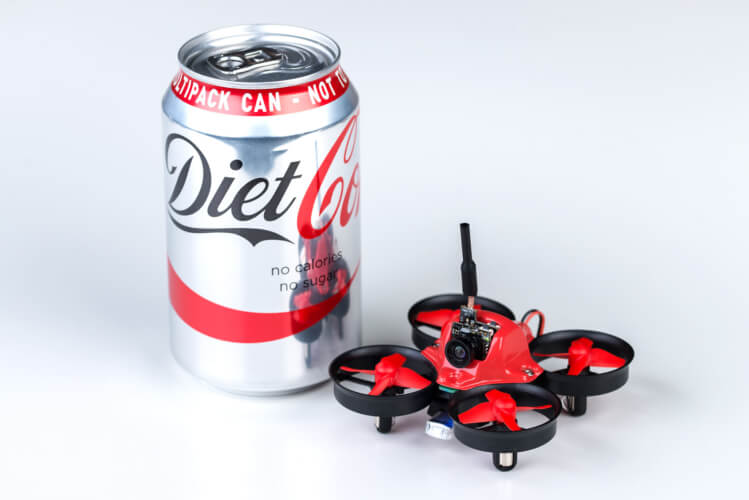 Micro in this case means really tiny, under 8cm in width and length and (ignoring antenna) just 5cm in height! The electric ducted fan (EDF) design not only protect the blades but makes for a more efficient propulsion system. Tiny flight controllers with integrated gyro's onboard give the craft a shallow learning curve. These features mean the drone can be used in new more challenging flight situations.
Micro in this case means really tiny, under 8cm in width and length and (ignoring antenna) just 5cm in height! The electric ducted fan (EDF) design not only protect the blades but makes for a more efficient propulsion system. Tiny flight controllers with integrated gyro's onboard give the craft a shallow learning curve. These features mean the drone can be used in new more challenging flight situations.  The prevalence of miniaturised lightweight, low power camera/transmitter units led people like ourselves to 'FPV all the things' from small quadcopters to RC Drift cars and motorbikes. The diminishing size of electronics also meant that quadcopters were also shrinking. The bind and fly Blade Inductrix shown above is supposedly the original base for the first Tiny Whoop. Camera/Transmitter units were stuck on-top and wired into the battery and the Whoop was born. Slowly but surely each element of the craft was replaced as members of the FPV community chased performance and or efficiency improvements.
The prevalence of miniaturised lightweight, low power camera/transmitter units led people like ourselves to 'FPV all the things' from small quadcopters to RC Drift cars and motorbikes. The diminishing size of electronics also meant that quadcopters were also shrinking. The bind and fly Blade Inductrix shown above is supposedly the original base for the first Tiny Whoop. Camera/Transmitter units were stuck on-top and wired into the battery and the Whoop was born. Slowly but surely each element of the craft was replaced as members of the FPV community chased performance and or efficiency improvements.
What is so good about them?
- Tiny size, making them ideal for flying indoors, through shelves, under desks, wherever.
- They are Efficient, with up to 4 minutes of flight from a tiny battery.
- Acrobatic Performance, capable of flips, rolls and fast climbs due to their power to weight.
- Robust, their ducted design also allows them to shrug off most wall impacts.
- Inexpensive to purchase and repair. Even the bigger-budget bundles represent great value.
- Many on the market are ready to fly, and such accessibility is rare when it comes to FPV.
- They are just awesome fun, seriously even if you just want to fly and not tinker.
Ok, I want to buy a Tiny Whoop
You've made a great decision, they are awesome fun and an excellent introduction to FPV racing in general. Now it all depends on your preferences. Do you want a monitor or some goggles) and budget (around £100 and up).I want the best Whoop, like yesterday!
 Having been through several setups, for instant gratification my preference is for the ready-to-fly Blade Inductrix a set of Dominator V3's and a DSM2 compatible receiver. It is not cheap setup but it covers all the bases and is the way to go if you are intending to expand your drone collection. With the Inductrix you get a full-size ergonomic transmitter and a FPV monitor ontop of a 'the' Tiny Whoop drone, plus the drone itself will bind with any DSM2 transmitter. Then the FatShark hardware offers traditional twin display goggles with IPD adjustment and built in PVR for recording your flights!
Having been through several setups, for instant gratification my preference is for the ready-to-fly Blade Inductrix a set of Dominator V3's and a DSM2 compatible receiver. It is not cheap setup but it covers all the bases and is the way to go if you are intending to expand your drone collection. With the Inductrix you get a full-size ergonomic transmitter and a FPV monitor ontop of a 'the' Tiny Whoop drone, plus the drone itself will bind with any DSM2 transmitter. Then the FatShark hardware offers traditional twin display goggles with IPD adjustment and built in PVR for recording your flights!
But I've already got some gear
 If you have already got yourself a quality DSM2 compatible transmitter (something like a Spektrum DX6) i'd suggest picking up a Makerfire Micro FPV Drone with F3 Evo FC DSM2 for a bind and fly solution. Alternatively if you already have yourself goggles/display with a 5.8Ghz race band reciever, grab yourself the standard Makerfire drone and transmitter which you should be able to tune in to.
If you have already got yourself a quality DSM2 compatible transmitter (something like a Spektrum DX6) i'd suggest picking up a Makerfire Micro FPV Drone with F3 Evo FC DSM2 for a bind and fly solution. Alternatively if you already have yourself goggles/display with a 5.8Ghz race band reciever, grab yourself the standard Makerfire drone and transmitter which you should be able to tune in to.
Is there a budget option?
 If money is tight then you can't beat the Makerfire Tiny VR007. Bar a pair of AA batteries (for the transmitter) It gives you everything you need to start Whoop'ing right out of the box. But we would suggest digging a little deeper for the EV800 bundle for the upgraded 2-in-1 goggles. They can be used in standalone 'FPV screen' mode allowing you to fly a mix of line-of-sight and FPV, before transitioning to full 'blocked-peripheral' goggle mode.
If money is tight then you can't beat the Makerfire Tiny VR007. Bar a pair of AA batteries (for the transmitter) It gives you everything you need to start Whoop'ing right out of the box. But we would suggest digging a little deeper for the EV800 bundle for the upgraded 2-in-1 goggles. They can be used in standalone 'FPV screen' mode allowing you to fly a mix of line-of-sight and FPV, before transitioning to full 'blocked-peripheral' goggle mode.
But I can make one for less...
 Admittedly the flat-out cheapest option for one of these drones would be to pick up the basic Eachine E0101 craft, solder on a budget FPV Camera/Transmitter and then grab a really cheap monitor with receiver, all from everyone's favourite auction site. Having actually gone through all of this myself I'd strongly suggest just picking up a Makerfire bundle! Put simply, its not that efficient an approach. The small price difference is in my opinion, outweighed by the Makerfire's upgraded 17500kv motors (something you would need to do to a basic E0101) and the convenience of it being ready to fly! I can understand why some might find this counter to the custom nature of the hobby, but many of our customers prefer to get a taste of a hobby through a simple, accessible entry before commiting to a more complex approach.
Admittedly the flat-out cheapest option for one of these drones would be to pick up the basic Eachine E0101 craft, solder on a budget FPV Camera/Transmitter and then grab a really cheap monitor with receiver, all from everyone's favourite auction site. Having actually gone through all of this myself I'd strongly suggest just picking up a Makerfire bundle! Put simply, its not that efficient an approach. The small price difference is in my opinion, outweighed by the Makerfire's upgraded 17500kv motors (something you would need to do to a basic E0101) and the convenience of it being ready to fly! I can understand why some might find this counter to the custom nature of the hobby, but many of our customers prefer to get a taste of a hobby through a simple, accessible entry before commiting to a more complex approach.
RC Geeks, Tiny Whoop Enthusiasts
 Everyone in the office goes wild for these drones from our pilots to our phone-team and i'm confident you will too. As such you can expect more in-dept blogs regarding Tiny Whoop setups and upgrades in the coming months. We have flown, crashed, repaired and flown a whole host of varieties to build up our expertise, so if you have any questions or requests about Tiny Whoop drones feel free to drop us a line either by phone, facebook or email! Do you have any questions, or have you spotted errors in the article? We welcome feedback so please leave us a comment below!
Everyone in the office goes wild for these drones from our pilots to our phone-team and i'm confident you will too. As such you can expect more in-dept blogs regarding Tiny Whoop setups and upgrades in the coming months. We have flown, crashed, repaired and flown a whole host of varieties to build up our expertise, so if you have any questions or requests about Tiny Whoop drones feel free to drop us a line either by phone, facebook or email! Do you have any questions, or have you spotted errors in the article? We welcome feedback so please leave us a comment below!
-

-

-

-

-

-
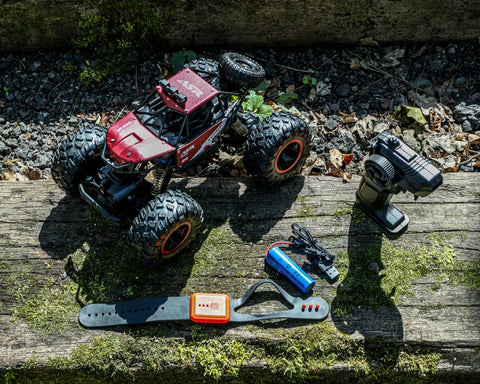
-

-

-

-
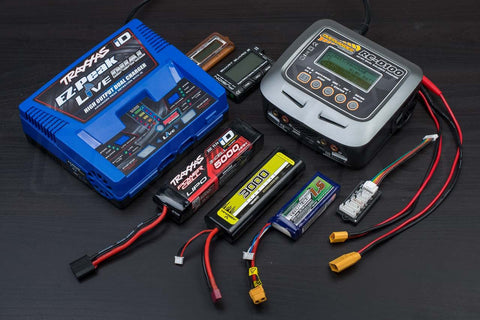
-
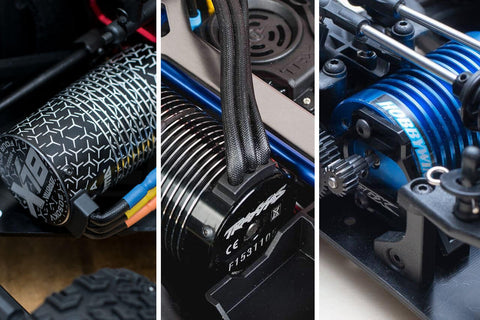
-

-

-

-

-

-

-

-

-

-

-

-
 reviews
reviewsAxial SCX10 II Jeep Cherokee Scale Crawler Review : Does it live up to its reputa...
Tom Begley | -

-

-

-

-

-

-

-

-

-

-

-

-

-

-
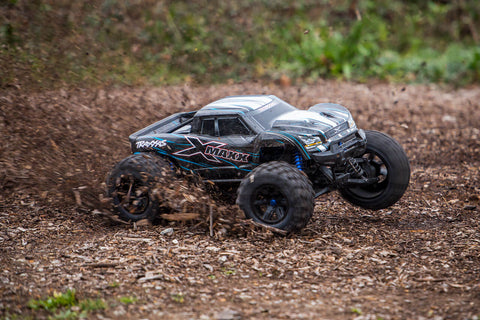
-
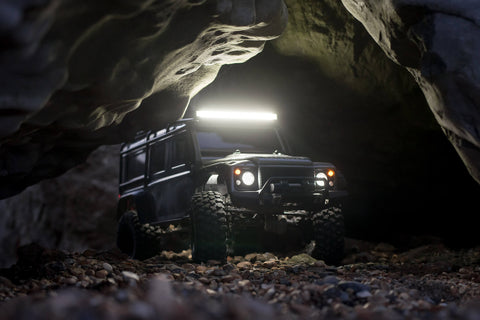
-

-

-

-

-

-

-
 tutorial
tutorialMavic 2 & DJI Goggles : The ultimate pairing in filming, inspections & surveys
Tom Begley | -

-

-

-

-

-

-

-

-

-

-

-

-

-

-

-

-

-

-
 reviews
reviewsFrSKY's Taranis Q X7 Transmitter - A budget alternative to the Taranis Plus X9D?
Tom Begley | -

-

-

-

-

-

-

-

-

-

-

-

-

-

-

-

-

-

-

-

-

-

-

-

-

-

-

-

-

-

-

-

-

-

-

-

-

-

-

-

-

-












































































































